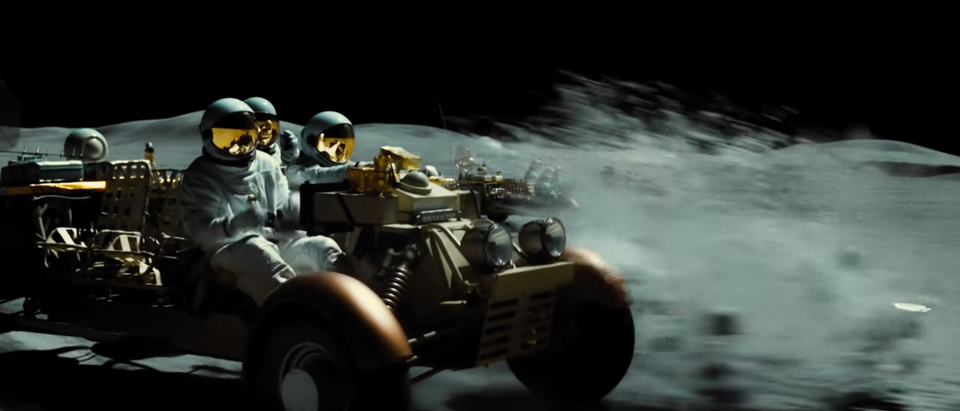Is outer space a “heart of darkness” in terms of both the physical environment and the human spirit when it is challenged and changed by exploration? A new movie, “Ad Astra,” examines that question.
Ad Astra is a space adventure starring Brad Pitt. It starts when the main character, Roy McBride, undertakes a psych evaluation. He is not connected with other human beings and, indeed, his own humanity. He has focused on the job of being an astronaut. Thus, begins a voyage to the edge of the solar system. It is also a voyage through the heart of a man who has traded away what makes him a man so that he can survive and thrive beyond the Earth.
In “the near future,” humans have settled on the moon and Mars. Years earlier, McBride’s father, Clifford McBride — played by Tommy Lee Jones — led an expedition to Neptune with the mission of contacting alien life. The elder McBride and his crew vanished, and were presumed lost.
Now, because of bursts of radiation that are wreaking havoc with electronics in the inner solar system, authorities have concluded that Clifford McBride might not only be alive but may have gone rogue. They assign the younger McBride to go to Mars to use a long-range communications system to try to contact his father. He winds up going to Neptune to find him and, if necessary, kill him.
That Roy McBride has father issues is to put the matter mildly. The loss of his father is likely part of the reason why the younger McBride has closed himself off from the rest of humanity.
NASA has been as concerned about the mental health of its astronauts as much as it has been their physical health. The space agency’s attention to the problem was forcibly directed due to the Lisa Nowak incident. Nowak, a NASA astronaut, drove nonstop between Texas and Florida, wearing an adult diaper to cut down on bathroom breaks. She attacked a romantic rival at the end of her journey. How the psychological screening missed the potential for such behavior caused a great deal of soul searching at NASA.
The space agency has developed mental health protocols for astronauts on the International Space Station (ISS). They include weekly conferences with psychologists on the ground and family support services to keep up connections with home. As a last resort, the ISS comes stocked with medications and even a restraint system in case of a mental break by one of the astronauts. The protocols will no doubt have applications for the moon, Mars, and beyond.
Besides periodic evaluations, which young McBride gives on his own to a machine, these kinds of supports seem to be absent in the movie’s setting. None of the mental health protocols that NASA has developed seems to be present. Roy McBride is pretty much responsible alone for his mental wellbeing. Of course, early 21st century mental health treatments would have removed the basis of the movie.
McBride undergoes a classic hero’s journey in traveling to Neptune. What he finds there not only provides the answer to the mystery of his father, but profoundly transforms him. The journey is across billions of miles and within himself.
Despite one scene of a battle with “space pirates” on the moon that seems tacked on, “Ad Astra” is more a psychological study than a typical space adventure. The images are breathtaking, which brings to mind another observation from the NASA study: “Space flight isn’t necessarily bad for mental health. In fact, research suggests space travel can be salutogenic — an experience that promotes health and wellbeing. For example, seeing Earth from afar can foster spirituality and unity among crew members. A 2006 survey of 39 astronauts and cosmonauts found ‘space travel is a meaningful experience whose effects endure for some time postflight.'”
The point? Space travel can make people better rather than breaking them. The problem of how to accomplish the first while discouraging the second is a question for physicians and philosophers alike to ponder. Ad Astra is a great contribution to that discussion.
Mark Whittington (@MarkWhittington) is the author of Why is It So Hard to Go Back to the Moon? and The Moon, Mars and Beyond. He also operates his own blog, Curmudgeons Corner.
The views and opinions expressed in this commentary are those of the author and do not reflect the official position of The Daily Caller.



